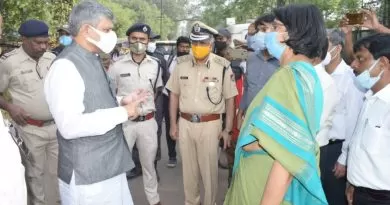Mild heat waves pose long-term mortality threat in India: Study

A study conducted in India suggests that while extreme heat waves have an immediate impact on mortality, it is the milder ones that pose a greater long-term threat due to their frequency. Researchers emphasise the need to investigate health risks associated with rising temperatures as heat waves become more prevalent with climate change.
Lead author Jeroen de Bont from Karolinska Institutet in Sweden explained the study’s focus on determining the increased risk of death during heat waves. The research, published in Environment International, analysed excess mortality in ten cities across different climate zones in India from 2008 to 2019.
Different definitions of heat waves were created by selecting days hotter than 95, 97, or 99 per cent of all days in various regions. The study revealed that the most prolonged and hottest heat waves, exceeding 99 per cent of days and lasting at least five days, increased mortality by over 33 per cent.
Contrastingly, milder heat waves, hotter than 95 per cent of days and lasting only one day, resulted in a mortality increase of just over 10 per cent. The unexpected finding indicated an inverse relationship between the intensity and duration of heat waves and the number of deaths.
De Bont clarified that the milder heat waves, being more common, proved to be deadlier over time, as the most extreme ones occurred infrequently. The study suggests a potential need for heat warnings triggered at lower temperature thresholds to enhance public protection.
The research team emphasises the importance of planning for both mild, short and frequent heat waves and extreme, long and rare heat waves in policymaking to implement effective measures for public health protection in the face of climate change.
(with PTI inputs)



